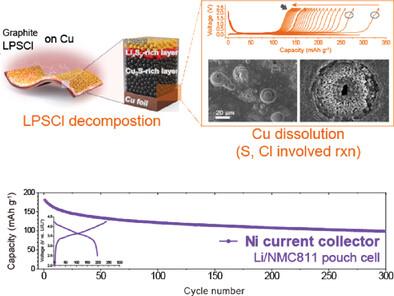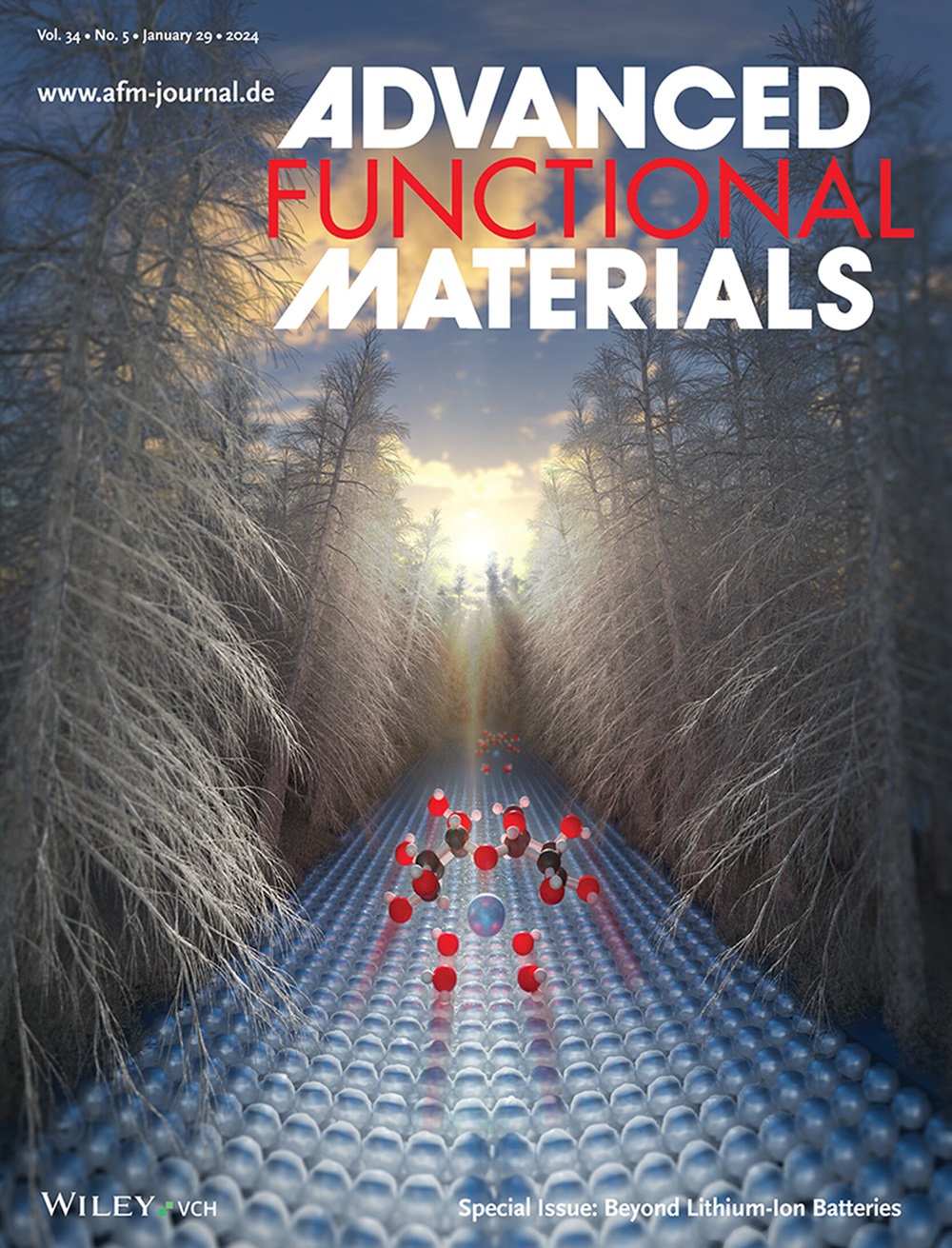Impact of Electrolyte Decomposition on Copper Corrosion in Li6PS5Cl‐Based All‐Solid‐State Batteries
IF 18.5
1区 材料科学
Q1 CHEMISTRY, MULTIDISCIPLINARY
引用次数: 0
Abstract
All‐solid‐state batteries (ASSBs) with sulfide‐based electrolytes, such as argyrodite (Li₆PS₅Cl, LPSCl), offer significant advantages regarding safety and energy density. However, conventional Cu current collectors with LPSCl suffer from corrosion, necessitating a deeper understanding of appropriate mechanisms and strategies to address them. This study investigates the impact of electrolyte decomposition on Cu degradation in sulfide‐based ASSBs. Accelerated experiments reveal that LPSCl decomposition forms an ineffective passive layer on Cu, resulting in significant corrosion above 2 V during delithiation. In addition, the corrosion potential implies that sulfide and chlorine species are involved in the corrosion reaction. Comparative analyses with Ni current collectors, which are known for their resistance to the corrosive species, demonstrate superior stability to Cu. Corrosion‐prevention strategies are proposed based on the elucidated mechanisms, with the Pilling–Bedworth ratio explaining why certain metal sulfide layers formed during electrolyte decomposition may fail to effectively prevent corrosion. These insights support the development of targeted protective strategies and alternative current collector materials to enhance the durability and performance of sulfide‐based ASSBs.

求助全文
约1分钟内获得全文
求助全文
来源期刊

Advanced Functional Materials
工程技术-材料科学:综合
CiteScore
29.50
自引率
4.20%
发文量
2086
审稿时长
2.1 months
期刊介绍:
Firmly established as a top-tier materials science journal, Advanced Functional Materials reports breakthrough research in all aspects of materials science, including nanotechnology, chemistry, physics, and biology every week.
Advanced Functional Materials is known for its rapid and fair peer review, quality content, and high impact, making it the first choice of the international materials science community.
 求助内容:
求助内容: 应助结果提醒方式:
应助结果提醒方式:


